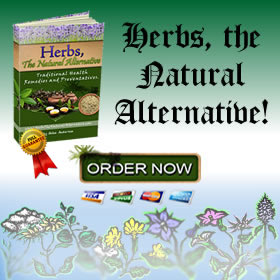Exploring Common Herbs and Their Uses
Are you interested in learning more about common herbs and their uses in herbalism? There are so many herbs out there that can provide various benefits for your health and well-being. In this article, we will explore some of the most commonly used herbs in herbalism and discuss their uses and potential benefits. Whether you’re looking to alleviate a specific health condition or simply want to incorporate more natural remedies into your life, this article will provide you with valuable information and insights. So, let’s dive in and discover the wonderful world of herbs!
When it comes to using herbs in herbalism, there are plenty of options to choose from. One popular herb is chamomile, known for its calming and soothing properties. It can be brewed into a warm tea to help promote relaxation and relieve anxiety. Another common herb is lavender, which is often used in aromatherapy to help reduce stress and improve sleep quality. It can also be used topically to soothe skin irritations and promote healing. These are just a few examples, but there are countless other herbs that can offer a wide range of benefits. In the rest of this article, we will explore more herbs and their specific uses, so stay tuned to learn more about how you can incorporate them into your daily life.
Introduction
Herbs have been used for centuries for their various medicinal and culinary properties. They are a natural and effective way to promote health and well-being. By incorporating herbs into your daily life, you can experience their numerous benefits. In this article, we will explore common herbs and their uses, so you can begin to harness their power and improve your overall wellness.
Rosemary
Aromatic herb popular in cooking
Rosemary is a versatile herb that is widely used in culinary applications. Its fragrant aroma and unique flavor make it a favorite in many dishes, especially those with roasted meats and vegetables. Rosemary can add depth and richness to your cooking, enhancing the overall taste of your meals.
Traditional remedy for digestive issues
Aside from its culinary uses, rosemary has long been used as a traditional remedy for digestive issues. It is said to stimulate digestion and relieve symptoms such as bloating and indigestion. Adding a dash of rosemary to your meals or enjoying a cup of rosemary tea after a heavy meal can help ease discomfort and promote healthy digestion.
May improve memory and concentration
Rosemary is also believed to have cognitive-enhancing properties. It has been traditionally used to improve memory and concentration. Some studies suggest that aromatherapy with rosemary essential oil may enhance cognitive performance and increase alertness. So, incorporating rosemary into your daily routine, whether through cooking or diffusing essential oil, may give your brain a natural boost.
Lavender
Relaxing and soothing scent
Lavender is widely known for its calming and soothing effect. Its pleasant floral scent has been used for centuries to promote relaxation and reduce feelings of anxiety and stress. Simply inhaling the aroma of lavender can help create a calming atmosphere, making it an ideal herb to incorporate into your self-care routine.
Used to promote better sleep
Many people struggle with getting a good night’s sleep. Lavender has been found to have sleep-promoting effects, making it a popular herb for those seeking better sleep quality. Studies have shown that lavender can help decrease the time it takes to fall asleep, improve sleep duration, and increase overall sleep satisfaction. Adding a few drops of lavender essential oil to your pillow or using a lavender-infused sleep spray can help you drift off into a peaceful slumber.
May reduce anxiety and stress
In addition to its relaxing scent, lavender is also believed to have anti-anxiety properties. The aroma of lavender has been shown to help reduce stress levels and promote a sense of calmness. Whether through aromatherapy or incorporating lavender into your bath routine, this herb can provide much-needed relief from the stresses of everyday life.
Chamomile
Known for its calming properties
Chamomile is another herb with powerful calming properties. It has been used for centuries to promote relaxation and relieve anxiety. Chamomile tea is a popular remedy for those seeking a moment of tranquility. The gentle flavor and soothing warmth of chamomile tea can help you unwind after a long day and prepare your mind and body for restful sleep.
Used to treat insomnia and promote relaxation
Insomnia can significantly impact your quality of life, but chamomile may offer a natural solution. Studies have shown that chamomile can help treat insomnia by promoting relaxation and improving sleep quality. Whether consumed as a tea or used as an essential oil in a diffuser, chamomile can help you achieve a more restful night’s sleep.
Commonly used in tea and aromatherapy
Chamomile is commonly consumed as a tea, but it can also be enjoyed in other forms. Chamomile essential oil can be used in aromatherapy to promote relaxation and relieve stress. Adding a few drops of chamomile essential oil to a warm bath or using it in a diffuser can create a soothing ambiance and help you achieve a state of calmness.
Peppermint
Refreshing herb with cooling properties
Peppermint is a popular herb known for its refreshing flavor and cooling properties. It is commonly used in culinary applications, adding a burst of flavor to dishes and beverages. Peppermint leaves can also be used to make invigorating teas, which have a cooling effect on the body, making them especially refreshing during hot weather.
Eases digestive discomfort and nausea
Peppermint has a long history of being used as a natural remedy for digestive issues. It is known to help relieve symptoms of indigestion, bloating, and nausea. Peppermint tea can aid in digestion, soothe an upset stomach, and alleviate discomfort after a heavy meal. Additionally, peppermint oil can be applied topically to the abdomen to provide quick relief from digestive discomfort.
Can help relieve tension headaches
If you suffer from tension headaches, peppermint may offer some relief. The menthol in peppermint has analgesic properties and can help relax tense muscles and ease headache pain. Applying a diluted peppermint oil blend to your temples or forehead may help alleviate tension and provide a cooling sensation.
Turmeric
Yellow spice with anti-inflammatory properties
Turmeric is a vibrant yellow spice commonly found in Indian and Asian cuisine. It contains a compound called curcumin, which has potent anti-inflammatory properties. Turmeric has been used for centuries to alleviate inflammation and pain associated with various conditions, such as arthritis.
Used to relieve joint pain and inflammation
The anti-inflammatory properties of turmeric make it a popular herb for relieving joint pain and inflammation. Many people with arthritis and other inflammatory conditions find relief by incorporating turmeric into their diet or taking curcumin supplements. Adding turmeric to your meals or enjoying a warm cup of turmeric golden milk can help reduce inflammation and promote joint health.
May support brain health
In addition to its anti-inflammatory properties, turmeric may also support brain health. Curcumin has been shown to cross the blood-brain barrier, and some studies suggest it may have neuroprotective effects. Turmeric is believed to help improve cognitive function and reduce the risk of age-related cognitive decline. Adding turmeric to your diet is an easy and delicious way to give your brain a natural boost.
Ginger
Spice known for its medicinal properties
Ginger is a flavorful spice widely used in cooking and traditional medicine. It has a warm and slightly spicy flavor, making it a popular addition to both sweet and savory dishes. Ginger has been valued for its medicinal properties for centuries and is commonly used to aid digestion and treat nausea.
Used to treat nausea and aid digestion
Ginger has long been renowned for its anti-nausea properties. It is a natural remedy for motion sickness, morning sickness during pregnancy, and nausea caused by various other conditions. Ginger can be consumed in various forms, such as ginger tea, ginger candies, or adding fresh ginger to your meals, to help alleviate nausea and promote healthy digestion.
May help reduce muscle pain and soreness
If you are dealing with muscle pain or soreness, ginger may offer some relief. It has been shown to have anti-inflammatory and analgesic effects, making it a natural pain reliever. Ginger can be applied topically as a ginger oil or consumed as a supplement to help reduce muscle pain and soreness associated with exercise or injury.
Garlic
Commonly used in cooking for flavor
Garlic is a staple ingredient in many cuisines around the world. It is widely used for its distinct and pungent flavor, adding depth and complexity to various dishes. Garlic is a versatile herb that can be used in both raw and cooked forms, making it a must-have in any kitchen.
Has antimicrobial and immune-boosting properties
While garlic adds flavor to your meals, it also offers several health benefits. It is known for its antimicrobial properties and has been used to fight off infections and support a healthy immune system. Garlic contains compounds, such as allicin, that have been shown to have antibacterial and antiviral properties, making it a valuable herb for overall wellness.
May help lower blood pressure
High blood pressure is a common health concern, but garlic may offer a natural solution. Studies have shown that garlic can help lower blood pressure levels, making it beneficial for those with hypertension. Incorporating garlic into your diet, whether raw or cooked, may help support healthy blood pressure and cardiovascular health.
Echinacea
Popular herb for boosting the immune system
Echinacea is a well-known herb used to boost the immune system and support overall health. It has been traditionally used to prevent and treat colds and flu. Echinacea supplements and teas are commonly consumed during the winter months to strengthen the immune system and reduce the risk of infections.
Used to prevent and treat colds and flu
Echinacea is believed to stimulate the immune system, increasing the production and activity of white blood cells. This boost in immune function can help prevent colds and flu or reduce their severity and duration. Regular consumption of echinacea supplements or teas can help keep your immune system strong and support your body’s natural defenses.
May reduce the severity and duration of symptoms
If you do catch a cold or flu, echinacea may help alleviate symptoms and shorten the duration of illness. Some studies have shown that echinacea can reduce the severity and duration of cold symptoms, such as congestion, sore throat, and cough. Adding echinacea into your self-care routine when you feel under the weather may help you recover faster and get back to feeling your best.
Conclusion
Incorporating common herbs into your daily life can have a significant impact on your overall well-being. Whether you’re looking to enhance your cooking, promote relaxation and sleep, support digestion, reduce inflammation, or boost your immune system, there is an herb that can help. By exploring the benefits of herbs such as rosemary, lavender, chamomile, peppermint, turmeric, ginger, garlic, and echinacea, you can take a natural and holistic approach to improving your health. So, why not start exploring the wonderful world of herbs and find the ones that work best for you? Your body and mind will thank you for it.

